Yakuza: Like a Dragon is my first experience with a Yakuza game, and it won't be my last. It's awesome.
Yakuza: Like a Dragon is one of the first titles hitting Xbox Series X when it launches alongside the console on November 10, 2020. Yakuza is a storied franchise, debuting on the PlayStation 2 back in 2005. The series has seen a bit of a resurgence in popularity in recent years, with remasters hitting Xbox Game Pass, alongside the Yakuza Zero prequel.
Yakuza games are difficult to describe to the uninitiated, but thanks to Xbox Game Pass, it's easy to jump in and give them a try for yourself either on Xbox consoles or PC. At their core, Yakuza games are open-world beat 'em ups, with a heavy emphasis on story. They're also known for their broad variety of mini-games, perhaps most famously, the franchise's over-the-top karaoke rhythm bars.
Yakuza: Like a Dragon is my first experience with the franchise, so if you'd prefer a veteran's perspective you may want to head elsewhere. But for millions of potential new players Yakuza is seeing in the West thanks to Xbox Game Pass, here's a crash course on what to expect, and why Yakuza: Like a Dragon might be an amazing place to start.
Like an anime
Yakuza: Like a Dragon
Against the underworld
Claw your way up from the bottom of Japan's metropolitan underworld, dabbling in karaoke and gangland warfare in equal measure.
Meet Ichiban Kasuga
I am told that Yakuza is a story well-known for its large amounts of dialogue and narrative, and the brief slice I played of Yakuza: Like a Dragon certainly seemed to hold true to that reputation. Our demo took place a few hours into the game, and I don't want to give away too many plot points for the sake of avoiding spoilers. It should be noted that Like a Dragon is separate from the other games in the series, too, with new characters and new areas.
You'll encounter all sorts of wild and varied characters, along with equally wild twists and turns.
Ichiban Kasuga is what you could describe as an ex-Yakuza, having been taken in by the Tojo Clan as a teen. Through his devotion and self-imposed life-debt to the Tojo crime family, Kasuga accepts confesses to a murder he wasn't involved in, to prevent a superior clan member from going to prison. Ichiban spends 18 years in prison as a result. Upon his release, he discovers that his prison sentence was all for naught, as his clan ended up betrayed to the authorities anyway, causing it to fall apart. Its remains end up part of a new clan, dubbed the Omi Alliance. Ichiban's quest to find out the truth leads him right back into the Yokohama underworld, where former friends now appear as cold-hearted foes.
Finding out the truth behind the series of betrayals and the shift in underworld crime family political power forms the basis of Kasuga's quest. As you scrape a living from the ground floor, freshly released from prison, you'll encounter all sorts of wild and varied characters, along with equally wild twists and turns.
Equal parts dark, emotional, and wacky
Without giving away too much of the story, Kasuga finds himself flat out broke after getting out of prison. Luckily, he meets others who are down on their luck as well, who resolve to join him on his quest for answers. And hey, maybe you'll also solve their problems along the way as well.
Despite all of the wackiness, Yakuza: Like a Dragon's sharp and emotional tale will instantly snap up all of your attention.
First is an ex-cop, Koichi Adachi, whose career was left in ruins after exploring the corruption within his own police force. And an ex-nurse, Nanba, now living life on the streets on the outskirts of Yokohama. In our demo, we were also introduced to Saeko Mukoda, a hostess at a local bar, who joins the three to investigate the apparent "suicide" of a local businessman.
The quartet resolve that the businessman's death may involve the local yakuza gangs, which winds up being another step in Kasuga's quest to discover the truth about the Tojo clan.
The game takes place in a city known as Yokohama, for the most part, which is part of the Greater Tokyo Area. Heavily urbanized, Yokohama is crammed with cars, random citizens going about their daily lives, and all sorts of stores and amenities. You'll need to familiarize yourself with the locations you unlock as you go, whether shopping for new weapons and gear, or consumables to keep your party healed up.
There are also tons upon tons of side missions and mini-games. One side objective has you managing the profits of a chain of sweet shops, while another has you riding around the city picking up cans for a homeless trader.
You might even find yourself fighting sheep people in a theatre, or taking on your friends in painstakingly tough rhythm mini-games in competitive karaoke. You can also undertake urban vigilante missions, fighting mini-bosses through a rent-a-hero app, Uber-style.
I feel like I've barely scratched the surface of what Like a Dragon has to offer, and despite all of the wackiness, Like a Dragon's sharp and emotional tale will still take up all of your attention in the blink of an eye, and put you right back on the edge of your seat. Yakuza: Like a Dragon plays like an interactive Japanese soap opera, and I'm already in love with the game's setting, characters, and quirkiness.
Rare turn-based JRPG combat
Yakuza: Like a Dragon breaks from the mainline series' beat 'em up combat, diving headfirst into old-school JRPG-style turn-based combat instead. But this is less classic Final Fantasy, and more South Park: The Stick of Truth meets Saint's Row. Yakuza: Like a Dragon's combat is utterly insane, in the best possible way.
Kasuga is a huge fan of the popular JRPG series Dragon Quest, and that fact seems to manifest in the way the game's combat translates into reality, as though it was being recycled and retold through the lens of a nerdy otaku.
The game's RPG progression is split into Final Fantasy V-like Jobs, following the theme of the protagonist's lack of employment. Kasuga and his comrades can undertake various "jobs," whether it's a Chef, Musician, Bodyguard, or Pop Idol, granting each character unique attacks and abilities.
The closest thing to a "mage" in the game I saw might be Nanba's "Homeless Guy" unique skill, which lets him use Molotov sprays for fire attacks and bad breath to debuff enemies. Kasuga's "Hero" job role lets him utilize special attacks with his trusty baseball bat, while the "Musician" job role lets you strum out a tune to debuff enemies, and buff your allies, Bard-style.
I wasn't able to get a real sense of the complexity or difficulty in the combat system since our press demo basically unlocked a huge amount of skills and items to play with. I felt over-leveled for the content I was experiencing too, able to just slice through enemies with the basic attack without paying much attention to any form of strategic play. I do get a sense that the full game will be a very different experience, though, if you're using regular weapons and skills earned through normal play.
You can maximize advantages by lining up attacks with enemy movements. If they're in a group, you might be able to hit multiple targets at once. If you knock one over, a follow-up attack from an ally is a guaranteed critical hit, and so on. If you're standing near objects in the environment, your characters will pick them up and use them for an extra attack as well, which adds some dynamism into proceedings.
Things start to get really crazy when you begin summoning "Pound Mates," who you can call up via Kasuga's smartphone. This function basically like Final Fantasy-style summons, and unlock via side missions throughout the game. In my playthrough, I was able to summon a boxer who would appear and deal massive amounts of damage to everyone on screen. I also befriended a chicken, who would show up and dramatically lay a magical egg to heal the party. It's just lunacy (in a good way). The enemies you face are as creative as they are demented, with everything from normal gangsters to trashbag mimics. Each enemy gets logged into your phone too, and can be inspected to discover weaknesses and strategies. You'll also face some crazy boss battles in the game, which we shan't spoil here.
But wait, how does it perform on the Xbox Series X?
You may be wondering why I didn't talk much about the Xbox Series X performance or quality up until now, and the answer is that I'm quite honestly not sure exactly what the "optimizations" are supposed to be. In performance mode, the game runs at a rock-solid 60 frames per second, but far below 4K. In resolution mode, the game struggles to punch higher than 45 frames per second. I feel as though this isn't exactly "optimized," since it seems to mirror the performance we've seen from past-gen Xbox One games running on the Xbox Series X.
When it comes to it's Xbox Series X "optimizations," it doesn't seem to do anything special.
Yakuza games aren't known for their cutting edge visuals by any means, but Like a Dragon does look great in resolution mode, with good lighting and crisp, detailed environments. But when it comes to it's Xbox Series X "optimizations," it doesn't seem to do anything special beyond what we've already seen from backward compatible games. The performance is similar to the unpatched Monster Hunter World, for example, comparing them between Xbox One X and Xbox Series X.
It makes me wonder if this build has been optimized for Xbox Series X at all, or if what we have here is just the Xbox One version running at a higher FPS. I couldn't get any information on what the optimizations are supposed to be when it came to writing, so, as for now, it'll just have to remain unknown. For what it's worth, all the above clips were captured on Xbox Series X running in 4K resolution mode.
The best JRPG on Xbox so far?
Yakuza: Like a Dragon certainly feels like it has the potential to be the best JRPG on Xbox so far. What little I experienced of the game's story made me excited enough to drop a preorder on the maximum tier digital edition, which is something I very rarely do.
This could be the best big-name JRPG we've had on Xbox for quite a long time.
I'm still unsure how the combat system will feel in the full game, given that the preview build had a huge arsenal of stuff pre-unlocked. I'm hoping that I won't feel as overpowered as I did in the full game, and there are certainly signs that won't be the case. The weapons I had equipped were far more powerful than the ones I found in the field, for example, leading me to think that the preview build was designed to make us overpowered. The game also has three difficulty settings too, so, there's always Hard mode if you want more of a challenge.
The combat is spectacular and exciting in any case, but it wasn't my favorite thing about Yakuza: Like a Dragon. From the few chapters I played, in Japanese, I already felt more connected to the game's characters than I've felt for a fair while.
I want to know what happens to Kasuga, Saeko, Nanba, and Adachi. I want to know what went wrong with the Tojo crime family. I want to meet every crazy character and unlock every mad side quest the game has, such as Nancy the crayfish up here. I also can't wait to really sink my teeth into the game's progression layers.
I really think this could be the best big-name JRPG we've had on Xbox for quite a long time. And hey, if Yakuza: Like a Dragon finds its audience, perhaps we'll start seeing more JRPGs hit the platform in the future too.
Like an anime
Yakuza: Like a Dragon
Against the underworld
Yakuza: Like a Dragon is a rare turn-based AAA JRPG well-worth keeping on your radar for the launch of the Xbox Series X on November 11.

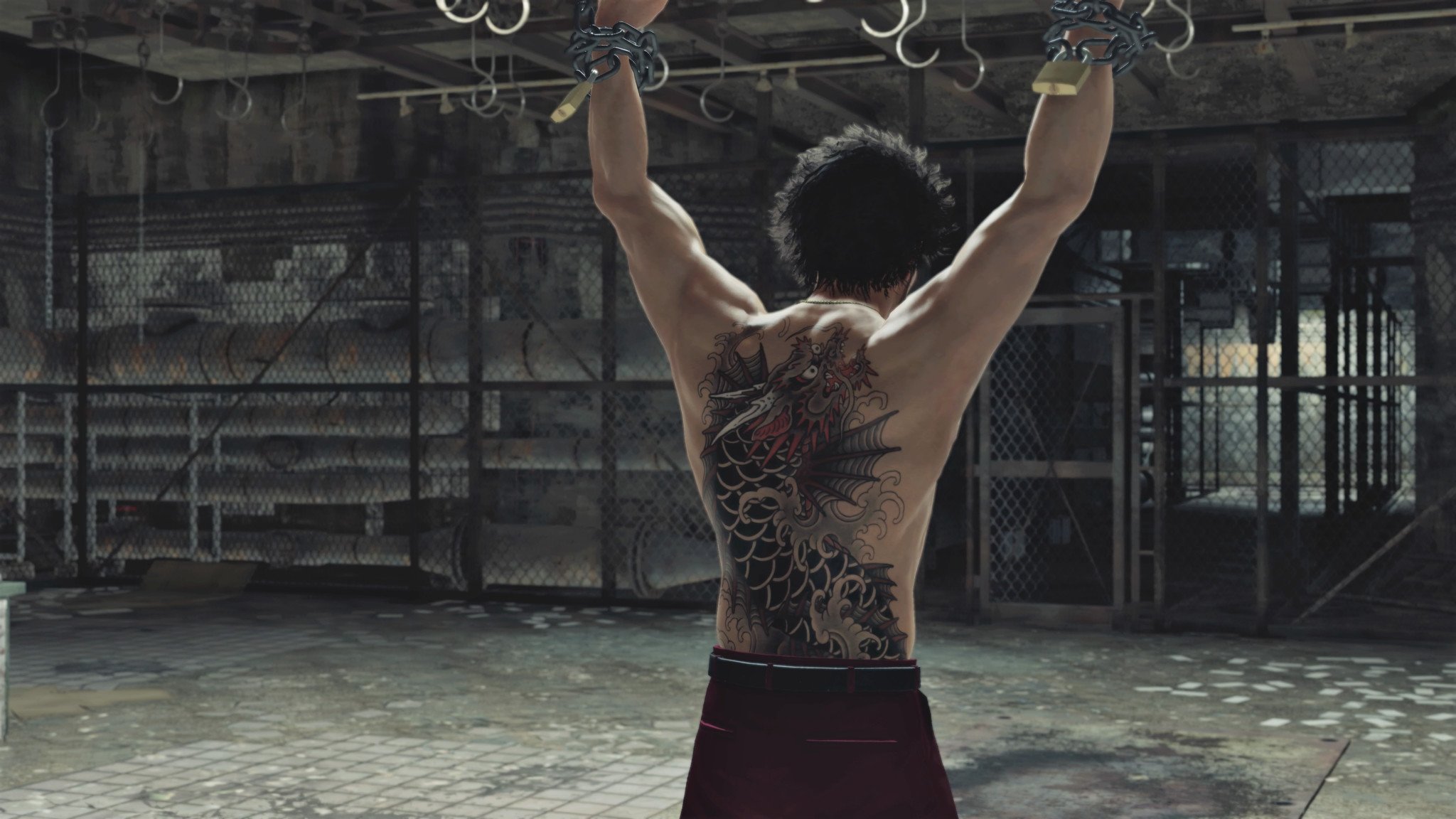

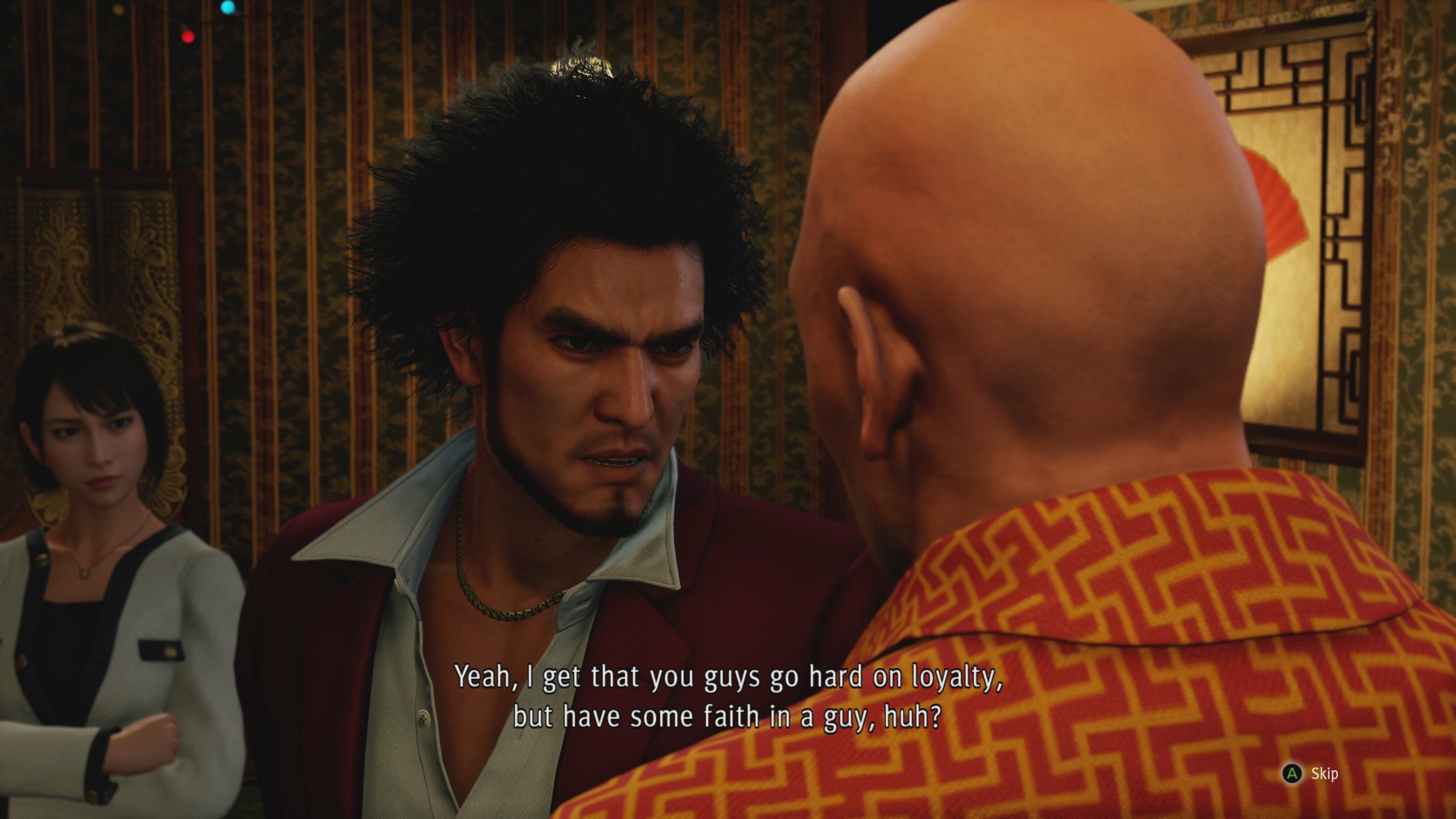

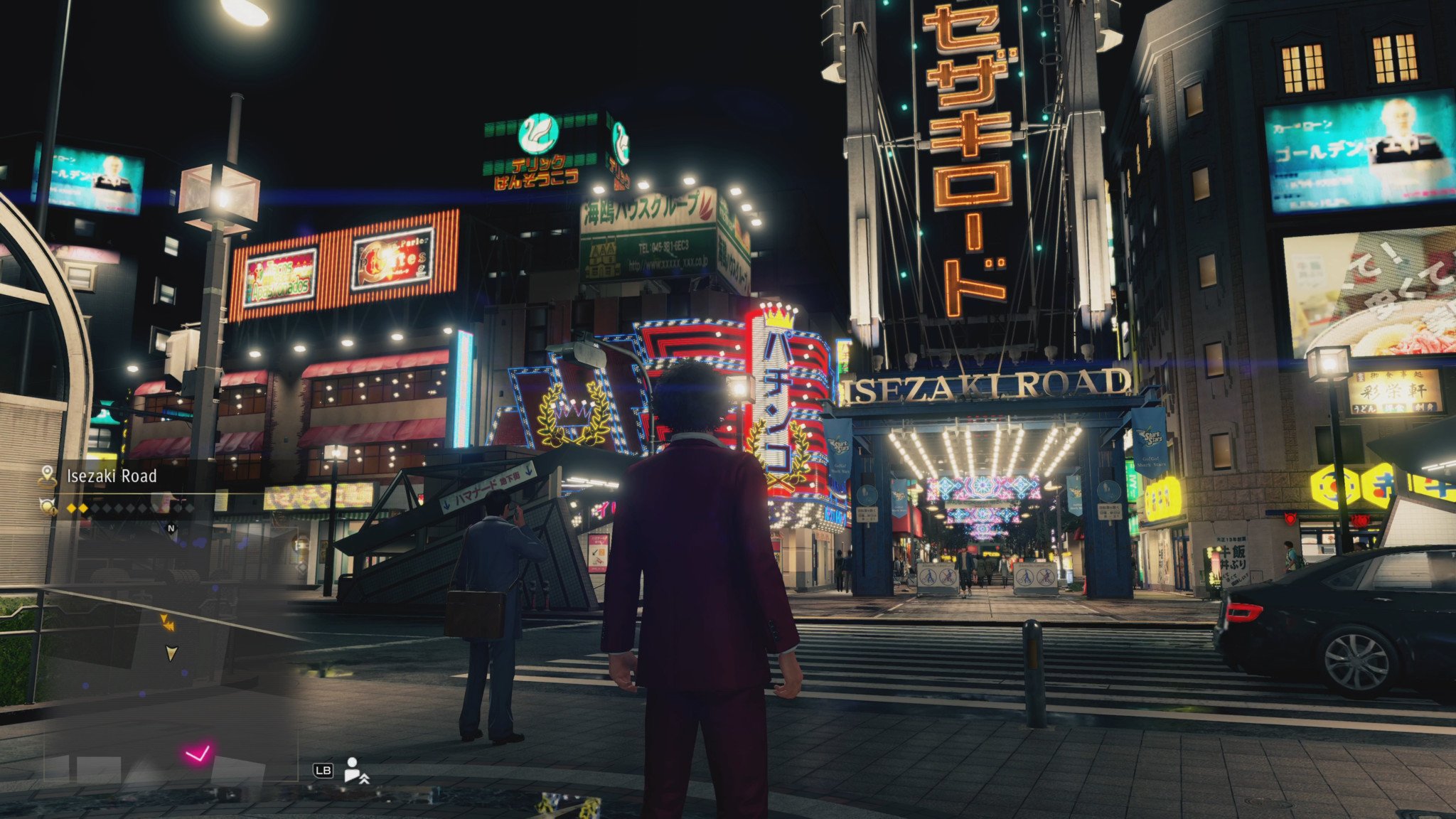
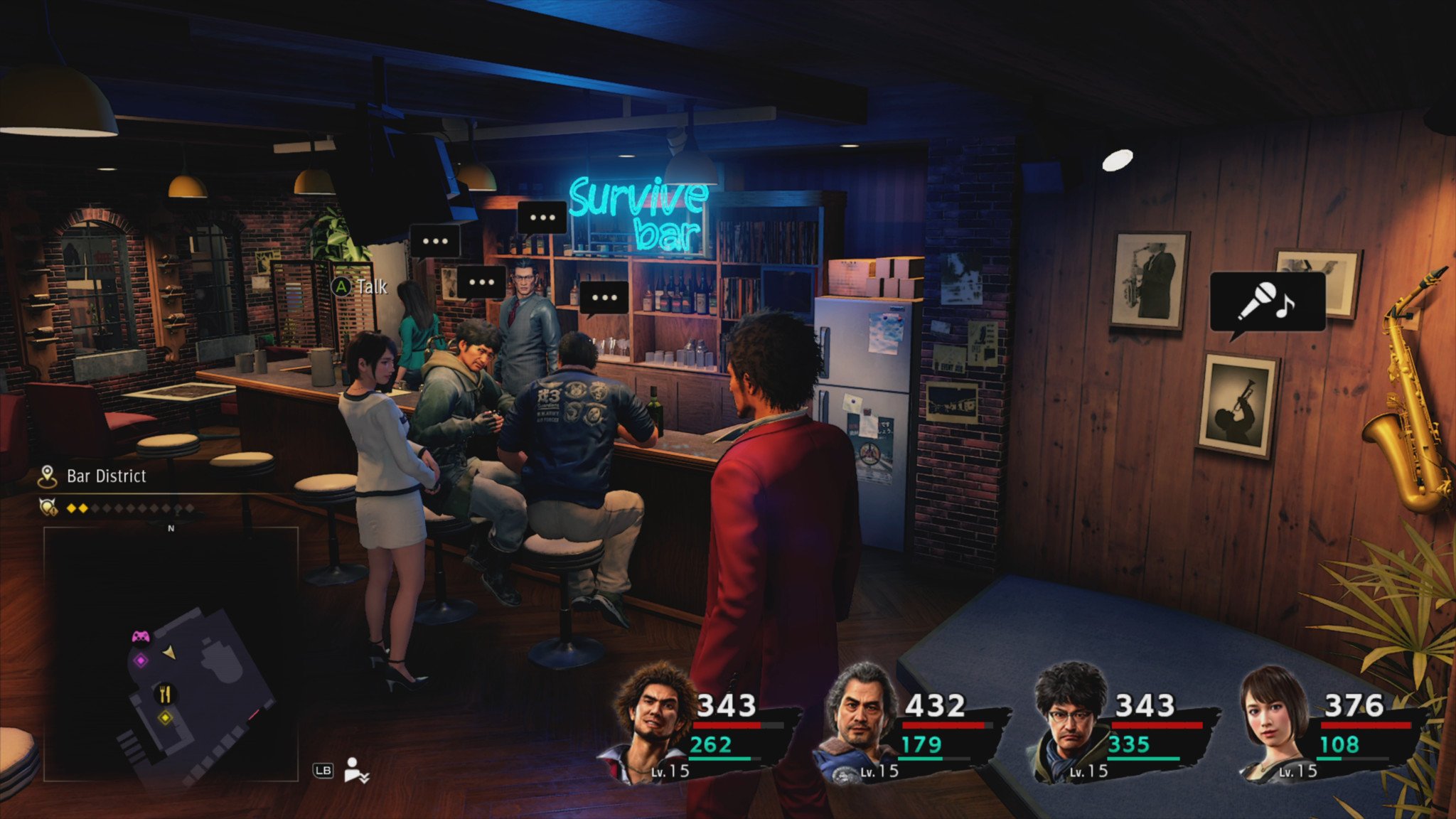

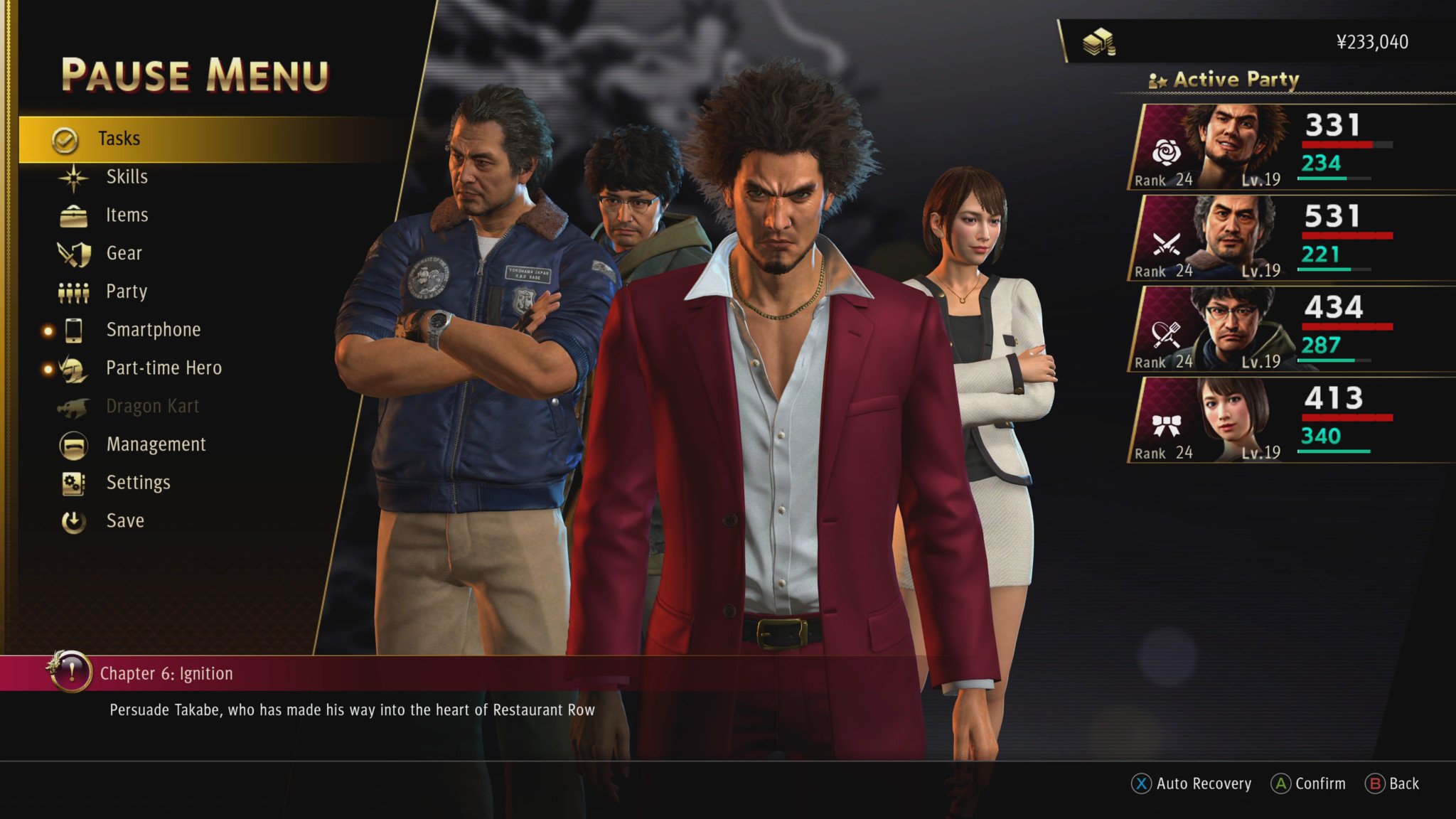
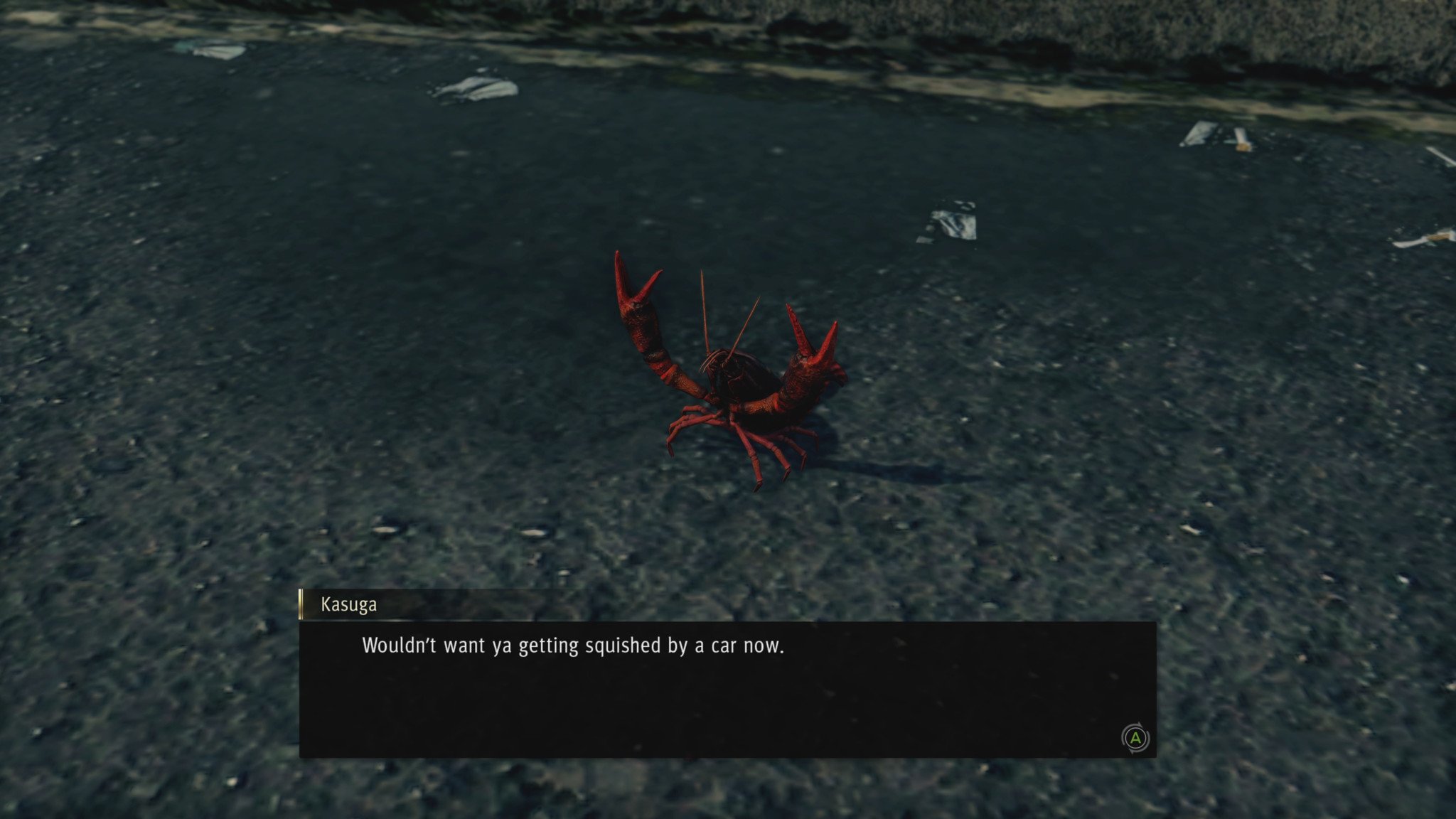




0 comments:
Post a Comment